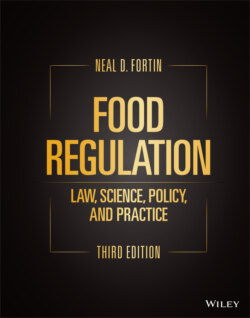Читать книгу Food Regulation - Neal D. Fortin - Страница 284
5.6.4 FDA’s Changes After Pearson
ОглавлениеFollowing the Pearson decision, the FDA announced a number of significant decisions and policy changes regarding its regulation of health claims. In general, these changes provide new flexibility for approval of claims. Food companies now have greater opportunity to communicate information about potential health benefits and specific conventional foods or dietary supplements.
Foremost, FDA now allows “qualified health claims” in the labeling of conventional foods and dietary supplements. The standard for approval for qualified claims shifted from the significant scientific agreement to the weight of scientific evidence. The FDA still requires premarket approval, but has stated that it will “consider” exercising enforcement discretion for a health claim when the following conditions are met:
1 The claim is the subject of an appropriately filed health claim petition.
2 The scientific evidence in support of the claim outweighs the scientific evidence against the claim, the claim is appropriately qualified, and all statements in the claim are consistent with the weight of the scientific evidence.
3 Consumer health and safety are not threatened.
4 The claim meets the general requirements for a health claim in 21 C.F.R. § 101.14.
Note: The first and fourth criteria are requirements found in the FDA regulations cited. The second and third come directly from the court of appeals opinion in Pearson.
